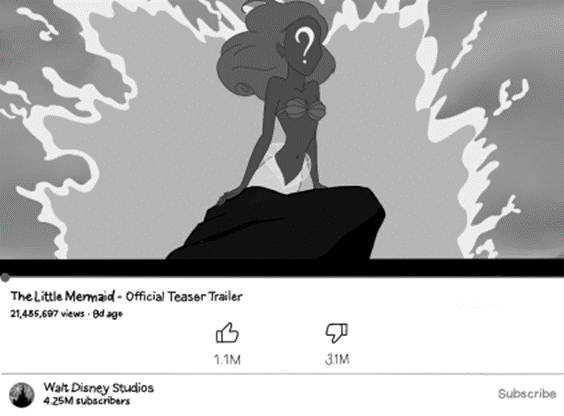
EDITORIAL
For many individuals, the ability to relate to fictional characters on the big screen brings with it a feeling of comfort and inclusion. For millions of people around the world, Marvel’s 2018 “Black Panther,” was the first time they had ever seen a person of color headline such a massive blockbuster; a film that has racked in over 1.3 billion dollars. A gargantuan win. Successes from films like it have sent a message to Hollywood about the importance and thirst for positive representation of minorities.
When there is a lack of diversity and inclusion from Hollywood and beyond, people belonging to marginalized groups begin to get the impression they’re not wanted. The impact of being represented in these major blockbusters as a force for good, instead of just a caricature and stereotype cannot be understated.
We live in a time and society where the people we see represented on television or the big screen help shape us and influence us in ways we’re still trying to wrap our heads around.
According to studies positive representation in the media, be it books or motion picture, help bring about a change in how people have viewed same-sex marriage, and how over the past 15 years, that view has shifted into a nearly overwhelmingly positive outlook. According to a study by the Pew Research Center, between 2002 and 2019, society had seen a “double-digit increase in acceptance”, with media representation playing a major factor.
A major obstacle though, is when companies use representation as a superficial way to increase their revenue with token characters of minority groups to tik another box and say “hey, look how inclusive we are.”
One great example of inclusion for profit would be Disney’s 2015 “Star Wars: The Force Awakens.” When it came to a theatrical release in China, Disney actually deemphasized Finn’s character in all of their major Chinese marketing material. A major, headlining character, a person of color, hidden in the background because Disney wanted more money from China.
Hell, have you ever used social media in June? It’s a common joke that most companies will change their stances publicly until July 1, when all of a sudden, the LGBTQ community no longer makes them money, and across the board, avatars, bios and linked resources disappear.
According to the US Census, non-whites make up just over 40% of Americans, yet according to a study by the UCLA, while there has been a steady increase since 2011 in casting for minority groups, they still don’t represent their place in reality.
A line must be drawn, between token representation for the sake of it, and actual, positive messages that help elevate marginalized groups.
We need more stories that focus on experiences from communities that can be told and related to positively, without stereotyping and downplaying for comedy’s sake.

Leave a Reply